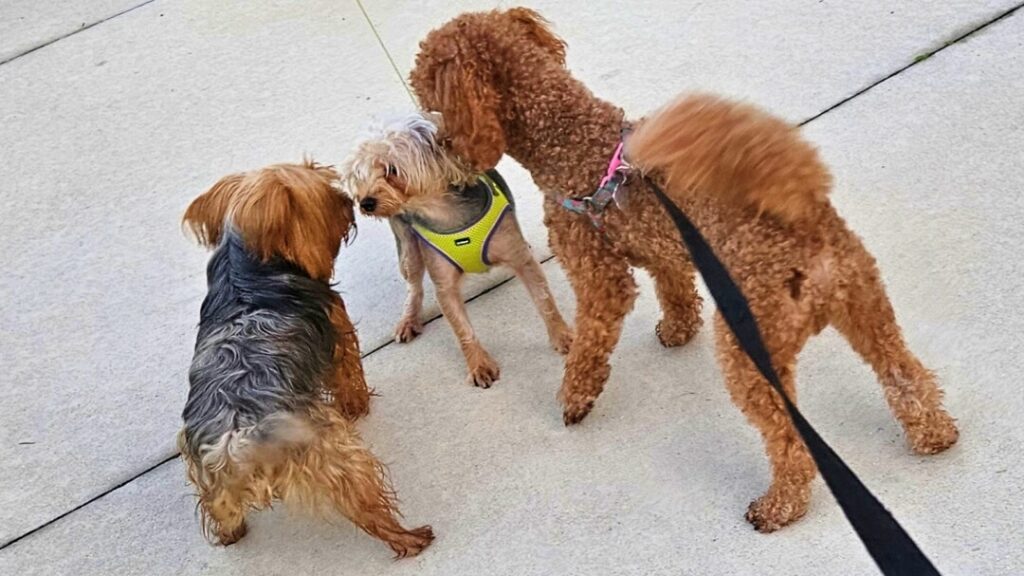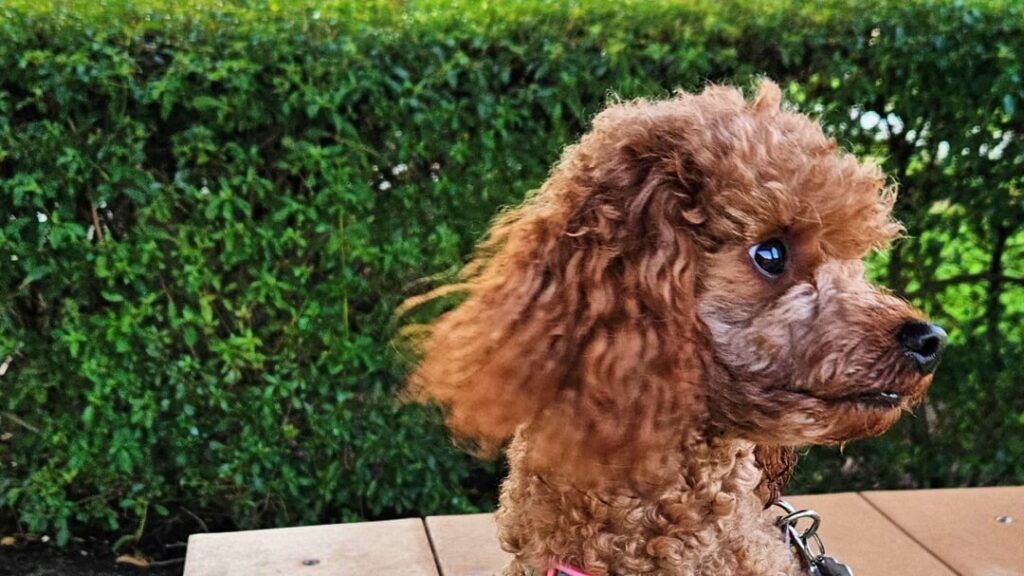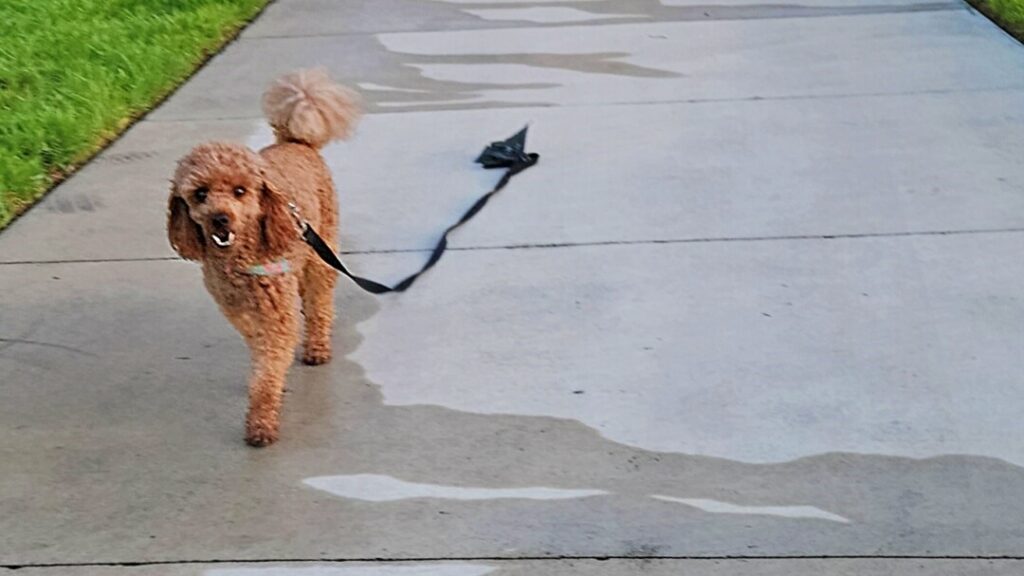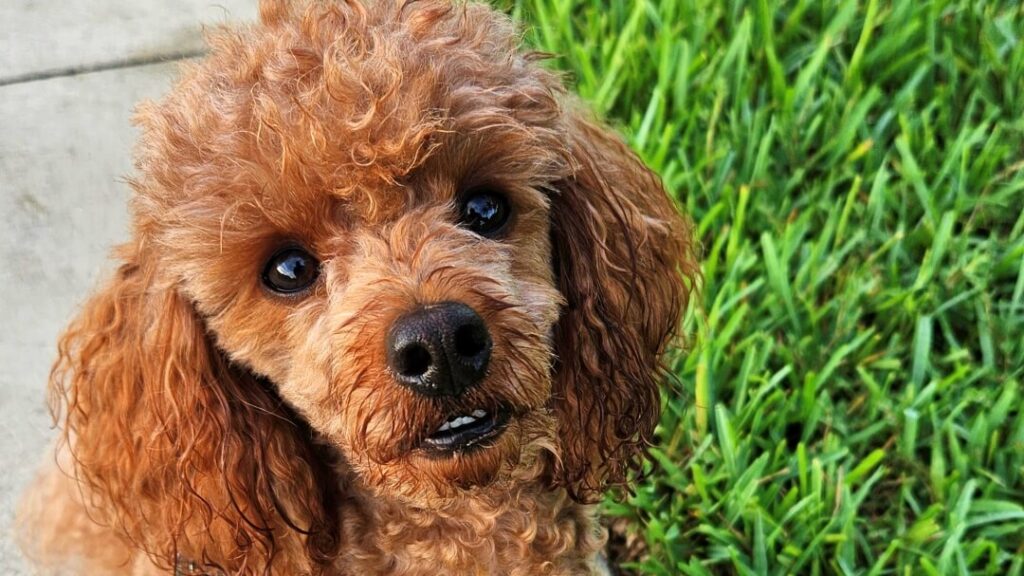Raising the Perfect Poodle
Welcoming a poodle puppy into your home can be both an exciting and challenging experience. These intelligent and energetic pups require early and consistent training to ensure they grow into well-mannered companions.
In this comprehensive guide, we’ll walk you through everything you need to know about poodle puppy training. Whether you’re a seasoned poodle enthusiast or a first-time dog owner, this guide will help you understand, train, and bond with your new furry friend.
Understanding Your Poodle Puppy
Characteristics and Behaviors
Poodle puppies are known for their intelligence, playfulness, and affectionate nature. These traits make them excellent pets, but they also mean that poodles can quickly become bored or frustrated without proper stimulation.
Poodles are highly trainable, but their keen intelligence requires consistent and varied training to keep them engaged.
Social Creatures
Poodles thrive in social environments and enjoy interacting with people and other animals. Early socialization is crucial to prevent behavioral issues such as shyness or aggression. Introducing your poodle puppy to a variety of people, places, and experiences will help them become well-rounded adults.
The Need for Mental Stimulation
Given their intelligence, poodles benefit greatly from activities that challenge their minds. Puzzle toys, interactive games, and training sessions that incorporate problem-solving can all contribute to a happy and well-adjusted poodle puppy.

The Basics of Poodle Puppy Training
Housebreaking
Housebreaking is one of the first challenges new poodle owners face. Consistency is key. Establish a routine that includes regular bathroom breaks, especially after meals and naps. Praise and reward your puppy each time they go outside to do their business.
Crate Training
Crate training provides a safe space for your puppy and can aid in housebreaking. Choose a crate that is just large enough for your poodle to stand, turn around, and lie down comfortably.
Make the crate inviting with cozy bedding and toys. Gradually increase the time your puppy spends in the crate, always associating it with positive experiences.
Socialization
Expose your poodle puppy to a variety of environments, sounds, and people. Early socialization helps prevent fear and aggression.
Puppy classes can be an excellent way to socialize your puppy while also working on basic training skills.
Obedience Training for Poodle Puppies
Teaching Basic Commands
Start with simple commands like “sit,” “stay,” and “come.” Use positive reinforcement techniques such as treats, praise, and play. Keep training sessions short and fun to maintain your puppy’s interest.
Manners Matter
Teaching your poodle puppy manners is essential for their safety and your sanity. Work on commands like “leave it,” “drop it,” and “wait.”
These commands can prevent unwanted behaviors and keep your puppy safe in potentially dangerous situations.
Consistency is Key
Consistency in training ensures your poodle puppy understands what is expected of them. Use the same commands and rewards for each behavior.
Involve all family members in the training process to ensure everyone is on the same page.
Advanced Training for Poodle Puppies
Agility Training
Poodles excel in agility training due to their athleticism and intelligence. Set up a simple agility course in your backyard or join a local agility club.
Agility training provides physical exercise and mental stimulation, strengthening the bond between you and your puppy.
Teaching Tricks
Teaching your poodle puppy tricks like “shake,” “roll over,” and “play dead” can be a fun way to engage their mind. Use positive reinforcement and break each trick down into small, manageable steps. Celebrate each success with treats and praise.
Mental Stimulation
Incorporate puzzle toys and interactive games into your poodle’s daily routine. These activities keep their mind sharp and prevent boredom-related behaviors such as chewing and excessive barking.

Common Challenges in Training Poodle Puppies
Stubbornness
Poodles can be stubborn at times. If your puppy is not responding to training, try changing your approach. Use high-value treats and keep training sessions short and engaging. Patience and persistence will pay off.
Separation Anxiety
Poodles are social animals and can suffer from separation anxiety if left alone for long periods. Gradually accustom your puppy to being alone by leaving them for short periods and gradually increasing the time. Provide toys and treats to keep them occupied while you’re away.
Addressing Behavioral Issues
If your poodle puppy exhibits behavioral issues such as excessive barking, chewing, or jumping, address them immediately. Identify the root cause of the behavior and provide appropriate outlets for their energy and intelligence. Consult a professional trainer if needed.
Training Tools and Resources
Recommended Books
Several excellent books can guide you through poodle puppy training. “The Art of Raising a Puppy” by the Monks of New Skete and “Don’t Shoot the Dog!” by Karen Pryor are highly recommended for their practical advice and positive reinforcement techniques.
Helpful Websites
Websites like the American Kennel Club (AKC) and the Association of Professional Dog Trainers (APDT) offer valuable resources, including training tips, articles, and forums where you can connect with other dog owners.
Essential Accessories
Invest in quality training accessories such as a sturdy leash, comfortable harness, training treats, and interactive toys. These tools will aid in your training efforts and keep your poodle puppy engaged and motivated.
Real-life Training Stories
Success Stories from Poodle Owners
Hearing success stories from other poodle owners can be motivating and reassuring. For instance, Sarah from New York shares how her poodle, Max, mastered housebreaking within a month using consistent routines and positive reinforcement.
Overcoming Challenges
John from California recounts how he overcame his poodle’s separation anxiety by gradually increasing alone time and providing mental stimulation through puzzle toys. His persistence paid off, and now his poodle, Bella, is more relaxed when left alone.
Tips from the Community
Engage with other poodle owners through online forums and social media groups. Sharing experiences and tips can provide valuable insights and support as you train your poodle puppy.

Conclusion
Training a poodle puppy is a rewarding experience that requires patience, consistency, and a lot of love. By understanding your puppy’s unique characteristics and needs, you can tailor your training approach to ensure success. Remember, every poodle is different, and what works for one may not work for another.
Keep experimenting with different techniques and always celebrate your puppy’s successes, no matter how small. With time, effort, and the right resources, you’ll raise a well-behaved and happy poodle that brings joy to your life.
Ready to start your training journey? Join our community of poodle enthusiasts and share your experiences with us. Together, we can help each other raise the perfect poodle companions.

